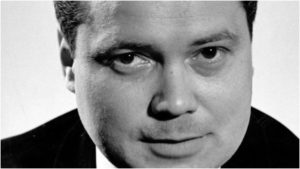
Artist Profile: Dietrich Fisher-Dieskau, From War Prisoner To Greatest Lieder Singer of All Time
By David SalazarDietrich Fischer-Dieskau was one of the most versatile musicians in the history of classical music.
Born on May 28, 1925, he performed opera, lieder, and oratorio in a wide range of languages and in any article regarding his stature always describes him as one of the greatest of all time or most influential. In fact, per Classic CD’s 1999 poll, he ranked as the second greatest singer of the 20th century behind Jussi Björling. He was esteemed by his colleagues
He started his voice lessons at the age of 16 though he was quickly drafted into the army for World War II. He was captured in 1945 and spent two years as a prisoner of war. However, during that time he sang Lieder at the POW camps.
After the war, he kickstarted his professional career as a singer, slowly building up his reputation in his native Germany. He branched out to major houses around Europe, performing in opera and concerts. In 1951, he made his first Lieder recordings. He would sing opera until 1978 but would retire altogether in 1993. He would become known as a singer of peerless technique and musicianship.
He died on May 18, 2012.
One fun fact about Fisher-Dieskau: he smoked for 20 years, but proudly noted that he stopped in a single day.
Signature Role
While he certainly performed his fair share of operatic masterworks and succeeded, the German baritone’s greatest triumphs came in the music of Schubert and even Mahler. His interpretations of Schubert’s lieder are easily among the finest ever recorded. His “Winterreise” interpretation is THE interpretation.
The same goes for his work in Mahler’s “Das Lied von der Erde,” which he recorded and performed extensively.
Read More
Shared Facts With Elena Souliotis
Watch and Listen
Listen to the immersive and glorious singing of the baritone in his famed “Winterreise” interpretation.
This might be the single most incredible recording of the famed “Erlkönig.”
Categories
Opera Wiki

